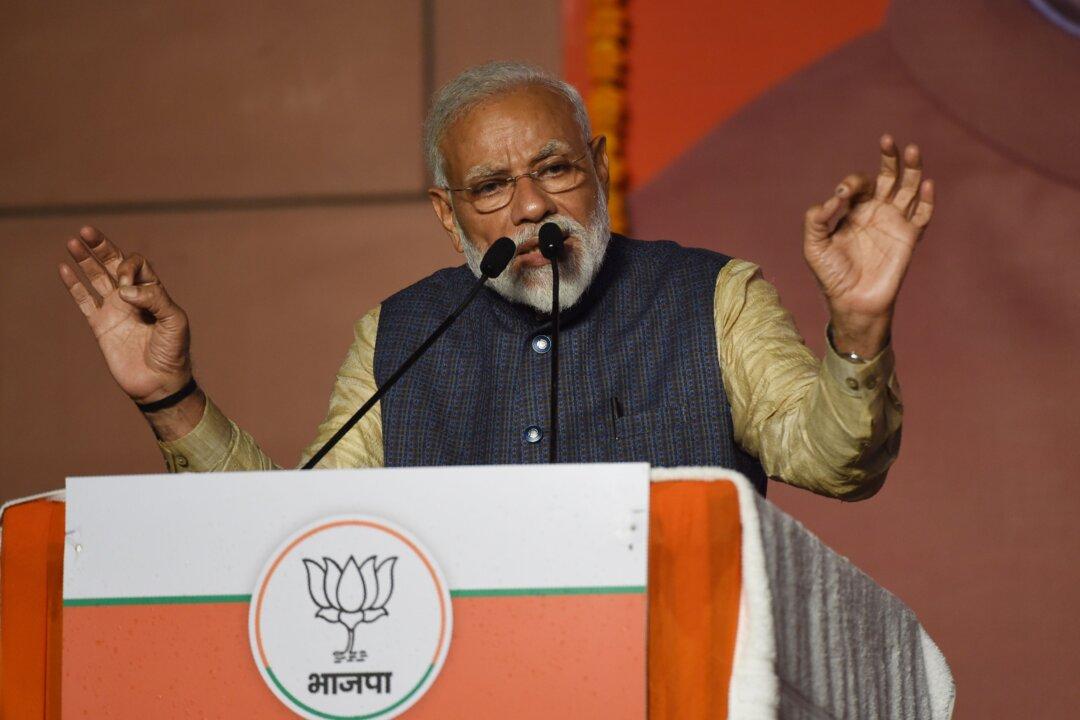Indian Prime Minister Narendra Modi was resoundingly re-elected on May 23 as leader of the world’s largest democracy. Modi’s Bharatiya Janata Party (BJP) swept over 300 seats in the Indian Lok Sabah, or lower house of parliament. The authoritative win now gives Modi’s BJP an even stronger legislative majority, with the nearest rival, the Indian National Congress led by Rahul Gandhi, with only 52 seats. The win is not only significant politically for Modi, but it also represents a success of democracy, where nearly 70 percent of eligible voters cast their ballot.
Modi’s strong support continues to transform Indian politics as well as India’s role in the region. Delhi continues to incrementally build up its partnership with the United States and has forged a strong bond with Japan, pledging to work together to promote a free and open Indo-Pacific region. The growth in a strong and principled Indian vision for the region has grown amid the rise of its neighbour—and often rival—China. Beijing’s rapid modernization and expansion of its military, in addition to its aggressive push for influence in India’s backyard through its Belt and Road Initiative, has forced Delhi to reassess its approach to regional security and prompted its warmer embrace of key stakeholders also concerned about China’s rise.
